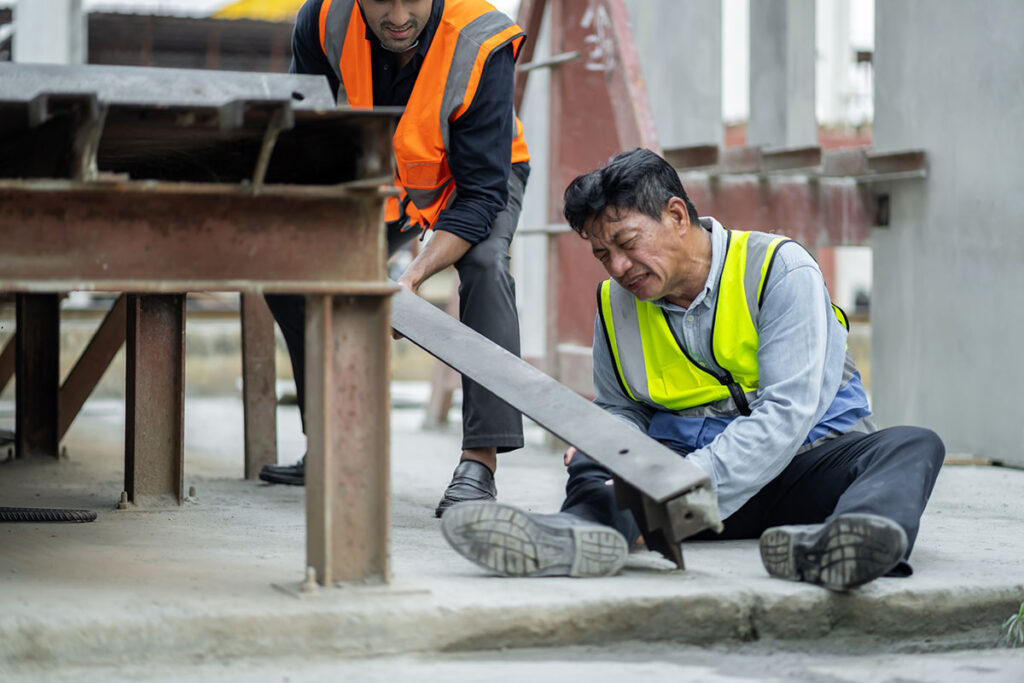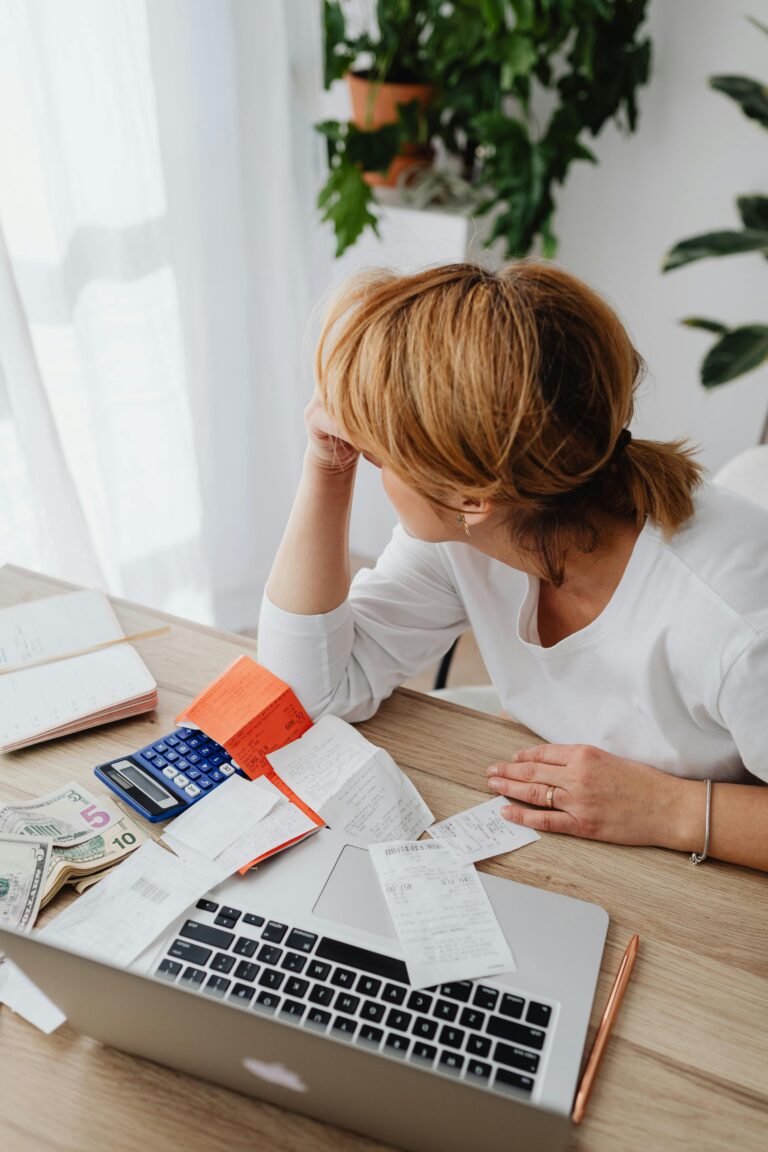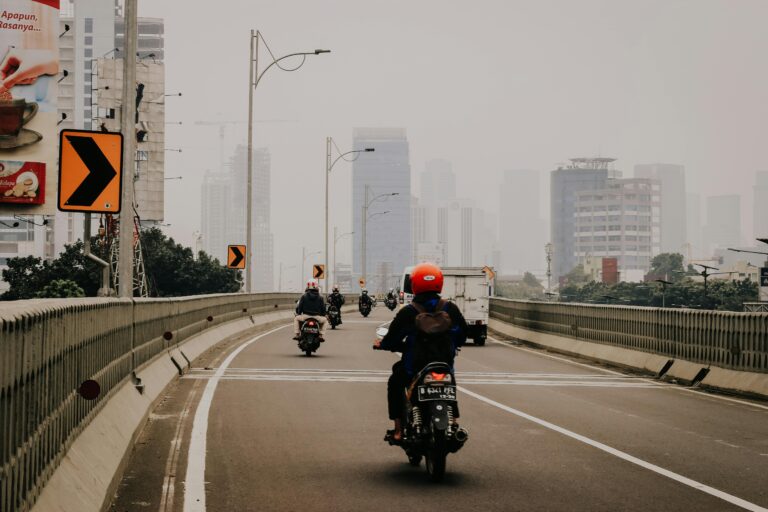Key Takeaways:
- Spinal cord injuries from falls are often preventable—and property owners have a legal duty to help prevent them.
- When property owners fail to respond to known dangers or delay needed repairs, they put people at risk.
- If you’ve suffered a fall due to a negligent property owner, acting quickly can protect both your health and your legal rights.
Spinal cord injuries are among the most devastating outcomes of fall-related accidents. These injuries often lead to permanent disability, chronic pain, and life-altering limitations. While many people associate these injuries with high-speed car accidents, they are also alarmingly common in premises liability cases.
Premises liability accidents happen when unsafe property conditions cause someone to fall. Property owners have a legal responsibility to maintain safe environments for visitors, tenants, and workers. When they fail to do so, the consequences can be catastrophic.
In this blog, we explore how negligent property conditions can lead to spinal cord injuries and what steps owners should take to prevent them.
Common Premises Hazards That Can Lead to Spinal Cord Injuries
Several types of property negligence can put individuals at risk for serious falls and spinal injuries:
Defective or Missing Railings
Falls from heights such as balconies, staircases, or elevated walkways are extremely dangerous. When a railing is loose, too low, or missing altogether, it creates a serious hazard. A simple slip can turn deadly if there’s nothing to stop the fall.
Poorly Lit Areas
Inadequate lighting in stairwells, hallways, parking garages, or entryways can obscure hazards such as steps, gaps, or spills. When people can’t see where they’re going, they’re more likely to trip or misstep—especially in unfamiliar or high-traffic areas.
Unsafe Work Platforms and Construction Zones
Property owners and contractors must provide safe working environments. Makeshift platforms, unsecured scaffolding, or failure to follow safety protocols can lead to sudden falls. Workers who fall from ladders, platforms, or unprotected edges often suffer spinal damage from the impact.
Poorly Maintained Stairs
Worn-out treads, broken steps, missing handrails, or slick surfaces on staircases are all red flags. A single misstep on a faulty staircase can cause someone to tumble down an entire flight—a fall that can easily result in spinal trauma.
Improperly Secured Objects
Not all spinal cord injuries come from falling to the ground. Objects that fall from shelves or building fixtures that aren’t properly secured can strike someone on the back or neck. This can result in blunt force trauma. These injuries are especially common in warehouses, retail stores, or even residential garages.
The Property Owner’s Duty of Care
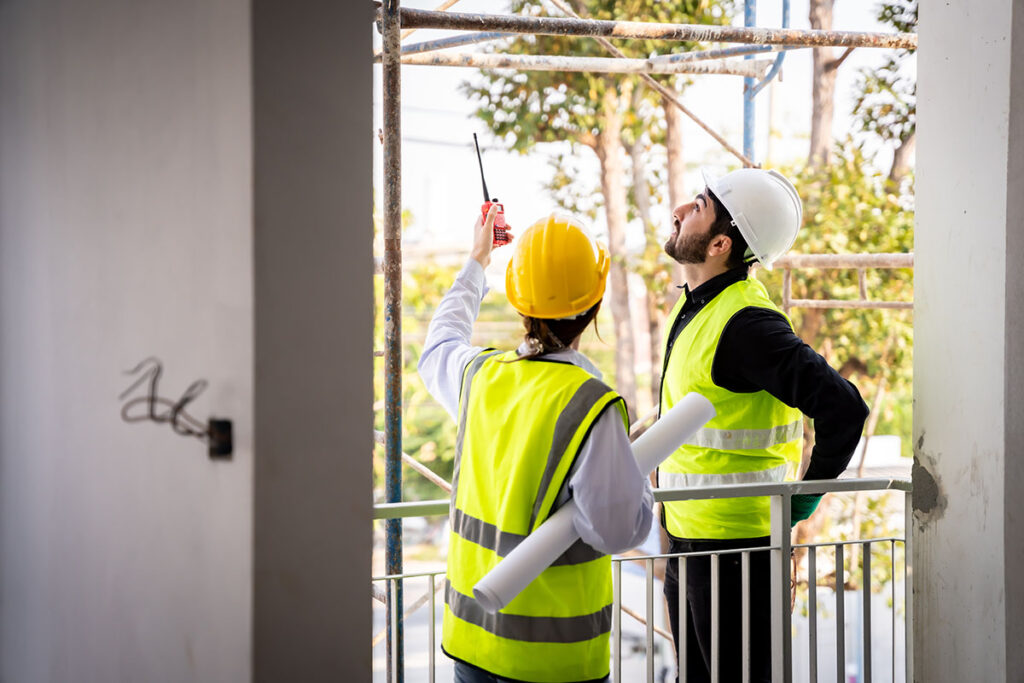
Under Texas premises liability law, property owners have a legal obligation to provide a reasonably safe environment for anyone who enters their property. This duty includes
- Regularly inspecting the premises for hazards
- Repairing dangerous conditions in a timely manner
- Clearly warning visitors about any risks that cannot be immediately addressed.
The level of responsibility may vary depending on the relationship to the visitor. The law provides different protections depending on if the injured person is a customer, tenant, employee, or even a trespasser. In general, property owners must take reasonable steps to prevent foreseeable harm. Failing to uphold this duty can result in legal liability if someone is injured due to their negligence.
Negligence can include ignoring known hazards, delaying necessary repairs, or failing to implement basic safety measures. For example, imagine a property owner gets a report about a hazardous stairwell and doesn’t fix it. They can be held accountable for any resulting injuries. Likewise, if a property neglects to secure heavy items on high shelves, they may be found liable if the items fall and someone is seriously injured.
Preventive Measures Property Owners Should Take
Preventing falls and spinal cord injuries starts with a commitment to property safety. Property owners should conduct routine inspections of both public and private spaces. They should pay special attention to stairs, lighting fixtures, and walking surfaces. Hazards such as loose carpeting, slick floors, broken steps, and dimly lit areas should be addressed immediately. Regular maintenance schedules and safety audits can help catch problems before they cause harm.
It is also essential to ensure that all safety equipment meets current building codes and is properly secured. Lighting should be bright enough to allow safe navigation at all hours. This is especially important in areas like stairwells, hallways, and parking garages. In work environments, OSHA standards should be closely followed. Ladders, platforms, scaffolding, and personal protective equipment should all be secure. Heavy items stored overhead must be anchored or stabilized to avoid toppling and causing injury.
Additionally, property owners should have clear procedures for responding to maintenance requests and reports of dangerous conditions. Staff should be trained to recognize and report hazards. Emergency response protocols should be in place to deal with accidents swiftly and responsibly. Being proactive in maintaining a safe environment not only reduces legal risk but can also save lives.
What to Do If You’ve Suffered a Fall on Someone Else’s Property
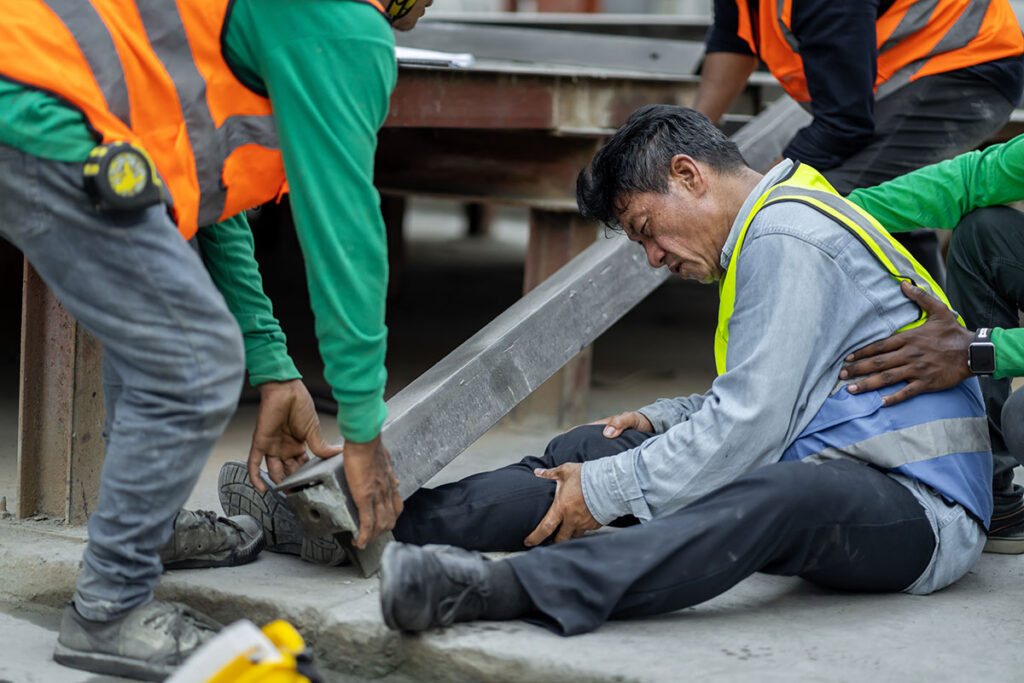
A fall that causes a spinal cord injury can change your life in an instant. If you or a loved one has suffered a spinal cord injury due to a fall on someone else’s property, it’s important to act quickly:
- Seek immediate medical attention
- Document the scene (photos, witness statements, incident reports)
- Avoid making statements to insurance adjusters before speaking with a lawyer
- Contact a personal injury attorney with experience in premises liability cases
At Snellings Law, we understand how overwhelming life becomes after a spinal cord injury. It’s not just the physical pain. It’s the sudden loss of independence, the stress of mounting medical bills, and the uncertainty about what the future will look like. Everyday tasks may now require help. Work and income may be put on hold. Families are often left scrambling to adjust and provide care, all while dealing with emotional trauma.
You shouldn’t have to face these challenges alone. Our team is deeply committed to supporting spinal cord injury victims and their families through every stage of recovery. This isn’t just a legal case—it’s your life. And we treat it with the attention, respect, and urgency it deserves.
Call Snellings Law Today
Spinal cord injuries demand immediate and experienced legal support. At Snellings Law, we have a proven track record of holding negligent property owners accountable and fighting for the rights of injury victims in North Texas.
If you or someone you love has been hurt due to unsafe property conditions, don’t wait. Our legal team will thoroughly investigate the cause of the fall and identify all responsible parties. We will work tirelessly to calculate and pursue the full value of your losses. We will guide you through the personal injury process with compassion and determination. Let us handle the legal fight so you can focus on healing and rebuilding your life.
Contact Snellings Law at 214-387-0387 today for a free consultation. We’re here to listen, support, and fight for the resolution you deserve.

